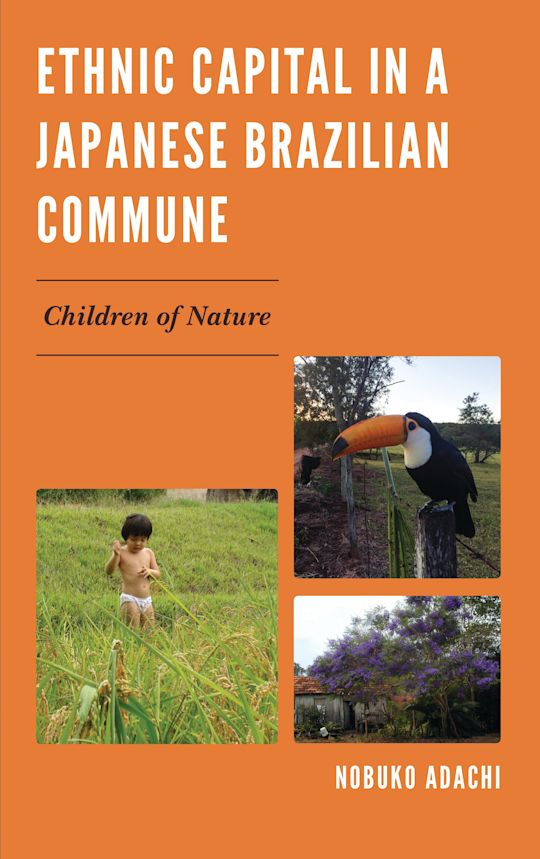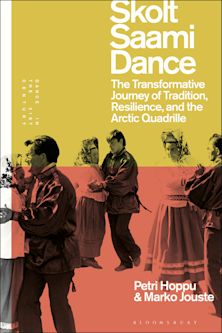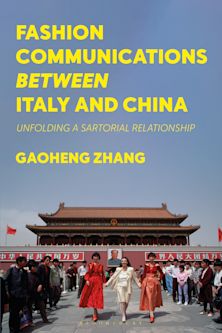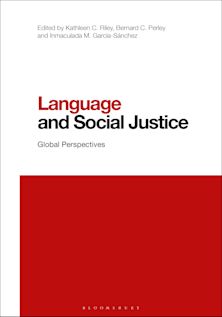- Home
- ACADEMIC
- Anthropology
- Cultural Anthropology
- Ethnic Capital in a Japanese Brazilian Commune
This product is usually dispatched within 1 week
- Delivery and returns info
-
Free CA delivery on orders $40 or over
You must sign in to add this item to your wishlist. Please sign in or create an account
Description
This is a book about the power ethnic capital and how it drives both the economics of, and the quest for identity in, a Japanese Brazilian commune. Adachi tells readers what this small diaspora community can teach us about how life “in the trenches” looks to those on the outskirts of the exploding transnational world economy. This book explores the various strategies locals use to compete with others with whom they are linked locally, nationally, and globally. Through the story of Kubo daily life, Adachi offers insights into important aspects of social and linguistic theory, as well as explicating how cross-border relations become more and more intertwined. In a sense, Kubo’s story, with its struggles to maintain its identity—even its survival—in an increasingly globalized world, encapsulates many of the problems now faced by smaller communities around the world, be they diasporic or regionally entrenched, or ethnically, racially, or religiously composed.
Adachi explores the motivations for racial and ethnic boundary-making based primarily on values and principles rather than purely physiological features by focusing on Kubo and its marketing of supposedly traditional Japanese cultural values, in spite of the commune being located in the interior of Brazil. To do this she incorporates notions from linguistic anthropology and sociolinguistics, including problems of language maintenance, the relationships between language and symbolic power, and the intricacies of language and gender. Doing so helps theorize the tensions between hybridity and purity entailed in the complexities of identity dynamics.
Table of Contents
Chapter 2: Dancing Farmers: Everyday Life in Kubo
Chapter 3: Why Be Children of Nature?: The Development of the Nohon-shugi Ideology and History of the Kubo Commune
Chapter 4: “Is Our Women’s Language ‘Abrupt’ or ‘Rough?’”: Social Roles and Gendered Spheres
Chapter 5: “After all, she is not even an o-jo-san (lady from the city), but a gaijin (foreigner)!”: Identities and Diaspora
Chapter 6: “We are fine with someone marrying a non-Japanese as long as they live outside the farm”: Cultural Identity and Ethnic Capital
Chapter 7: Beyond Kubo
Product details
| Published | Feb 16 2017 |
|---|---|
| Format | Hardback |
| Edition | 1st |
| Extent | 208 |
| ISBN | 9781498544849 |
| Imprint | Lexington Books |
| Illustrations | 18 BW Photos, 5 Charts, 1 Map, 7 Tables |
| Dimensions | 236 x 164 mm |
| Series | AsiaWorld |
| Publisher | Bloomsbury Publishing |
About the contributors
Reviews
-
Adachi has written an engaging and insightful ethnography.Considering that the book is based on deep, longterm research beginning over twenty-five years ago, one wonders whether Adachi, a person from Japan, eventually comes to be considered a quasi local.
Anthropos
-
Ethnic Capital in a Japanese Brazilian Commune is an important addition to the growing field of Latin American ethnic studies. By focusing on one commune in the huge agricultural state of São Paulo, Brazil, Nobuko Adachi provides readers with fascinating insights into how capital helps to create community identities linked to economic viability. As she shows, daily life is filled with both local and global strategies that have an impact on everything from gender norms to racial and religious ideas of self and other.
Jeffrey Lesser, Emory University
-
Nobuko Adachi's ethnography of Kubo, a rural Japanese commune in contemporary Brazil, interweaves empirical description, theoretical analysis, and an evocation of the human dimension of living in today's globalized world. Using the key concept of ethnic capital, she uncovers the dynamics within which actors are not only subjects of external forces but actively construct their own identities and use ethnic practices as resources to further their interests. Clearly written with a flowing style, this volume represents a significant contribution to scholarship about the processes of globalization, developments in Brazil and Japan, and contemporary understandings of ethnicity.
Eyal Ben-Ari, Hebrew University of Jerusalem
-
As a historian of Japanese North Americans with some grasp of Japanese Brazilians—the largest element of the Japanese diaspora—I was fascinated and instructed by Nobuko Adachi's nuanced account of a Japanese minority group in a rural commune in isolated northern São Paulo. That she is, herself, a Japanese North American, provides an added bite to her anthropological insights about ethnicity, class, and gender.
Roger Daniels, University of Cincinnati
-
Anthropologist Nobuko Adachi presents a lively and accessible account of Japanese immigrants to Brazil’s Aliança village near Mato Grosso do Sul. Daily practices revolving around the colonists’ sense of community, ethnicity, Japanese agrarian communalism, women’s use of language, ‘insider vs outsider’ social relations, and the pursuit of art and expression, all inform this thoroughly engaging ethnography.
Lane Ryo Hirabayashi, University of California, Los Angeles


































